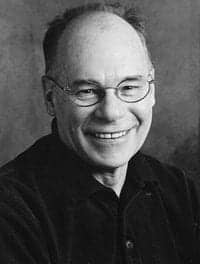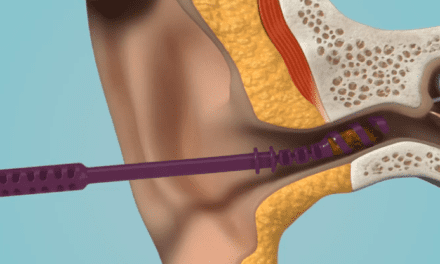Hearing loss can run deeper than the loss of hearing function
|
I met Paul on a hot, hazy, and humid day in Boston. The weather and other things were making me a bit cranky. But I managed a smile when I greeted him in the waiting room. He was 50 years old and very depressed. Although he had been profoundly deaf in his right ear since birth, he had managed this quite well.
Paul had been extroverted and a successful salesman. That is, until about 10 years ago when, for some unknown reason, he lost all his hearing in his “good ear.” He couldn’t do sales anymore. He suffered from severe tinnitus, which he described as a “high pitch motor whirring.” That internal noise robbed him of his sleep. He suffered from a host of medical conditions as well. In his words, he felt like “throwing in the towel.”
Almost immediately, I got a grip on my so-called problems and put them in perspective. He had much more to complain about than the weather.
He mentioned parenthetically that he had been stuck in traffic on the way to our appointment. Initially, I gave his complaint as much credence as my earlier lamentations about the humidity, saying something like “Yeah, it’s awful, isn’t it?” But he continued. He talked at some length about his anger and frustration in traffic jams and with those stupid Boston drivers, etc. He would beep his horn, feel his blood pressure rise, scream obscenities at the window —but remain stuck. In fact, one of his goals for therapy had to do with controlling his anger while on the road. So, for a bit of time, we talked about anger management in the car.
From a nonpsychological perspective, this makes no sense. One would ask, “You’ve lost your hearing, lost your job, lost your sleep; so why on earth are you talking about traffic jams?” However, from a psychological perspective, it makes tons of sense—for being stuck in traffic was a metaphor for how Paul felt about his life.
I asked him what else makes him feel so stuck and angry. His responses:
- “Professionals who don’t take my complaints seriously.”
- “People who aren’t willing to repeat themselves.”
- “Being told by others that what I can’t understand isn’t important and isn’t worth repeating.”
He recounted several instances of being minimized by peers in an amateur photography club that he had recently joined.
Paul was being consumed by the inequities of how he was treated. In the psychological literature, this is sometimes referred to as “secondary trauma.” It’s not only one’s disability, or the loss of hearing, that affects people; it’s also the insensitivity of others—the secondary trauma. In Paul’s case, hearing loss was like being trapped in a traffic jam with nowhere to go and with others around him going on their merry way.
He felt helpless and angry. As we explored these feelings further, his fear and terror became more clear. The terror consisted of being trapped or consumed by losses and of being victimized by the cruelty of others. As another hard-of-hearing man put it, “I’m in my 60s, married, and have two grown children. Although I’ve parachuted from airplanes in the war and have had other so-called challenges in my life, nothing can compare to the terror of feeling alone in a crowd after losing my hearing!” It’s potent stuff.
Looking at Positives
So what does one do with this helplessness, anger, and terror? When Paul and I were exploring these feelings, I thought of the afternoon of 9/11. After being glued to that horrible video clip of the planes crashing into the World Trade Center all morning, I spent all afternoon and evening weeding my garden. I hadn’t weeded it so much before and certainly not since, but on 9/11 I gave it my full and undivided attention. Again, from a nonpsychological perspective, this makes no sense. But psychologically, what was going on was quite clear, even while I was in my garden. It felt like one of the few things I could control in the midst of a world that felt very much out of control. It gave me strength to cope with the aftermath of that terrible day. (And it resulted in better tomatoes and basil.)
I asked Paul to tell me about his photography hobby. He told me that he bought his first “real” camera in 1980 and quickly became the family historian, photographing the holidays, birthdays, and vacations like most “normal” people, as he characterized it. He also noted that “coincidentally,” just before he completely lost his hearing, his interest in photography began to grow. He had planned a family vacation to the Grand Tetons and Yellowstone partially to introduce his son to the national parks and the great outdoors, and also to start taking more serious scenic pictures.
As it turned out, he couldn’t take his family on that trip because he had to have ear surgery. Later, he ended up taking the trip himself. Since then, he has become a very serious photographer, regularly going on long “safaris,” and he has won many awards.
When he talked about his photography, his eyes beamed; he sat forward in his chair, and he became alive. No longer stuck in traffic.
We met for several more sessions. Among the lessons he’s taught me (yes, it’s true that therapists learn from their clients) is the important balance between going out in the big, bad, scary, unpredictable world and enjoying some respite and so-called “emotional refueling.” Paul’s passion and expertise in photography resulted in much more than great photos. It fed his soul; it emotionally refueled him; it gave him enough “emotional fuel” to tolerate more the barriers he faced as a late-deafened adult.

|
After one session, I asked him if he would look through his thousands of photos that he has taken and bring in one that represented how he felt as a late-deafened adult. The next week he brought in the photo, and several months later he gave me a framed copy to hang on my wall. Its title is “Lost in the Fog” (see photo).
It’s a very powerful and a very beautiful photo. Paul said what was instantly evident: “That is a beautiful tree but isolated, all by itself.”
It’s among the most special presents I’ve ever received, both because it’s from Paul’s soul and because it reflects his artistry. I hung it right over my desk so I look at it every day. His photo inspires me, no matter what I’m doing, whether I’m filling out those darn insurance forms, paying taxes, or playing Sudoko on my computer.
And it also makes me sad.
During one of our meetings—and I don’t know if he noticed this—my mind was elsewhere for a few minutes. I wasn’t paying attention. I was imagining that his photo had more trees, not just one. (The nerve of me, wanting to tamper with his art!) But couldn’t I, you know, send him an anonymous e-mail or something asking him to add a few more trees? No, that wouldn’t be good manners, and he’d probably figure out who sent the e-mail.
But my mind kept going. What if Paul came to an Association of Late Deafened Adults (ALDA) meeting? (He had never been before.) What if I was giving a speech to a bunch of people at ALDA about Paul, with his photo on the PowerPoint screen and with Paul in the audience? And after the speech, Paul would come up so all could comment on his magnificent photo? And I would publicly thank Paul for all he has taught me. What if? A crazy fantasy.
Sometimes fantasies do come true. When I recently gave this lecture at the ALDA conference, I looked at Paul who was sitting in the front row. I said to him, “I want to tell you that your journey has inspired me and it has inspired many others. Many people who come to my office find themselves in awe at your photo. And I tell them your story; it gives them hope and an appreciation not only of beauty but possibilities for their own lives.”
And then I said what a great pleasure and, more importantly, what a great honor it was to introduce Mr Paul Smith.
Acknowledgement
This paper was originally presented at the Association of Late Deafened Adults (ALDA) Conference, September 2007, in Greenville, SC. It appears with permission from Paul Smith.
Correspondence can be addressed to [email protected] or Michael Harvey, PhD, at .






